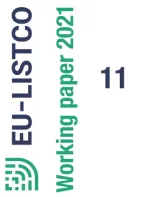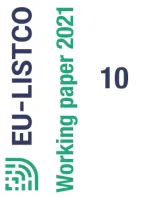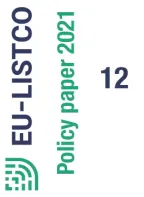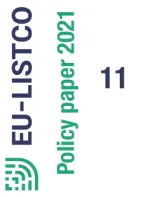EU-LISTCO
Europe's External Action and the Dual Challenges of Limited Statehood and Contested Orders
EU-LISTCO investigates under which conditions ALS/CO (Areas of Limited Statehood)/(Contested Orders) deteriorate into governance breakdown and violent conflict, turning risks into security threats for Europe.The project also looks into how the preparedness of the EU and its member states can be strengthened to anticipate, prevent, and respond to threats of governance breakdown and violent conflict and to foster resilience in ALS/CO.

Two risks characterize the European Union’s (EU) regional and global security environments, 1) areas of limited statehood (ALS) in the EU’s East and South, in which central government authorities are too weak to enforce rules and/or do not control the monopoly over the means of violence; 2) contested orders (CO), in which various actors challenge the rules according to which societies and political systems are and should be organized.
By combining risk scanning and foresight methodologies with comparative case studies, we will identify the tipping points at which risks turn into threats, and how they might be better anticipated. We will also investigate how global and diffuse threats affect tipping points as well as the sources of resilience in ALS/CO that can be leveraged from the outside.
In particular, we will examine the strategies, capacities, and policy instruments of EU institutions and selected member states, with a focus on the provisions of the Lisbon Treaty and the implementation of the EU Global Strategy. A new methodology for knowledge exchange between academia and foreign policy will assist EU-LISTCO to achieve its policy objectives. EU-LISTCO encompasses a unique consortium of universities and think tanks in close cooperation with the European External Action Service as well as the Ministries of Foreign Affairs of France, Germany, and Italy. This knowledge exchange will take place continuously allowing scholars to incorporate concrete policy challenges in their research and enabling policy practitioners to pursue research-based policies.
This project has received funding from the European Union’s Horizon 2020 research and innovation programme under grant agreement No. 769886
Follow us on Twitter and Facebook
Partners:
- Freie Universität Berlin (FUB)
- Palestinian Center for Policy and Survey Research (PSR)
- Bilkent Üniversitesi
- Barcelona Centre for International Affairs (CIDOB)
- European University Institute (EUI)
- Fondation Nationale des Sciences Politiques (Sciences Po)
- Georgian Institute of Politics (GIP)
- Global Public Policy Institute (GPPI)
- Peace Research Institute Oslo (PRIO)
- Interdisciplinary Center Herzliya (IDC)
- Istituto Affari Internazionali (IAI)
- The Polish Institute of International Affairs (PISM)
- Ukrainian Institute for Public Policy Civic Organization (UIPP)







